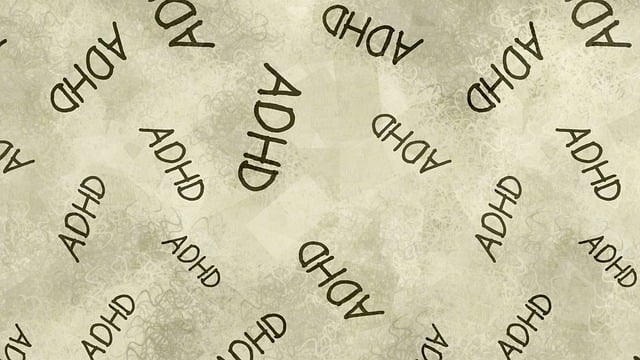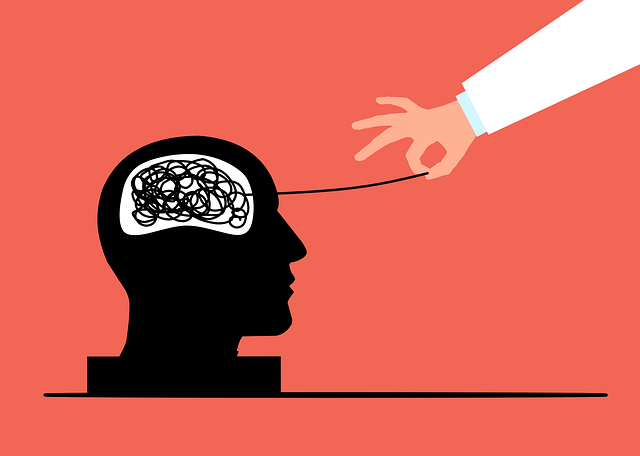Depression, a complex mental health disorder, requires proactive management. Recognizing its multifaceted causes, including biological, genetic, environmental, and psychological triggers, is essential. Wheat Ridge Stress Management Therapy (WRSMT) offers effective prevention and treatment by addressing these root causes through evidence-based techniques like cognitive-behavioral therapy (CBT), mindfulness, and lifestyle changes. Regular exercise, quality sleep, and nutritious eating habits, coupled with social support from understanding relationships, further enhance mental wellness. Public awareness campaigns and increased Mental Health Awareness reduce stigma, encourage early intervention, and minimize depression relapse rates. Integrated strategies combining WRSMT with community support foster a culture that prioritizes lasting mental health recovery.
Depression is a prevalent yet profound mental health challenge, but proactive strategies can be life-changing. This article guides you through essential aspects of depression prevention, offering practical insights for a healthier mind. From recognizing triggers and implementing lifestyle changes to exploring therapy options like Wheat Ridge Stress Management Therapy and fostering support networks, each section equips you with tools to manage and prevent depressive episodes effectively.
- Understanding Depression and Its Triggers
- Lifestyle Changes for Improved Mental Health
- The Role of Therapy in Preventing Relapse
- Building a Supportive Network
- Effective Coping Mechanisms and Stress Management Techniques
Understanding Depression and Its Triggers

Depression is a complex mental health disorder that significantly impacts an individual’s emotional well-being and daily functioning. It’s essential to recognize that depression isn’t just a fleeting bad mood; it’s a persistent state that can last for weeks, months, or even years if left unaddressed. Understanding its triggers is a crucial step in prevention. Various factors contribute to the onset of depression, including biological, genetic, environmental, and psychological elements. These triggers can be as personal as a major life event like loss or trauma, or as subtle as chronic stress from work or relationship issues.
Wheat Ridge Stress Management Therapy and similar emotional well-being promotion techniques have proven effective in preventing and managing depression. By identifying and addressing these triggers, individuals can develop coping strategies to enhance resilience. Additionally, Trauma Support Services play a vital role in healing from past traumas that may contribute to burnout prevention, another significant aspect of maintaining mental health.
Lifestyle Changes for Improved Mental Health

Depression can be a profound and debilitating condition, but it’s not impossible to prevent or manage effectively. One significant aspect of mental health care is embracing lifestyle changes that promote overall well-being. Simple yet powerful strategies like regular exercise, adequate sleep, and a balanced diet have been shown to reduce symptoms of depression and anxiety. Incorporating these habits into daily routines can be a game-changer in preventing relapse and fostering emotional resilience.
In addition to physical health practices, Wheat Ridge Stress Management Therapy offers valuable tools for mental wellness. Techniques such as mindfulness meditation, compassion cultivation practices, and confidence-boosting strategies help individuals navigate life’s challenges with greater ease. By addressing underlying causes of stress and cultivating emotional healing processes, these therapeutic approaches empower people to take control of their mental health and build a more robust foundation for long-term well-being.
The Role of Therapy in Preventing Relapse

Therapy plays a pivotal role in preventing depression relapse by addressing underlying causes and equipping individuals with coping strategies. Wheat Ridge Stress Management Therapy, for instance, focuses on identifying and modifying maladaptive thought patterns and behaviors that contribute to stress and emotional distress. This form of therapy helps clients develop resilience, enhance self-awareness, and acquire effective problem-solving skills, all of which are crucial in maintaining mental wellness.
Public awareness campaigns development and increased Mental Health Awareness can further reinforce these therapeutic benefits. By destigmatizing mental health issues and encouraging open conversations about depression, individuals are more likely to seek help early on and adhere to treatment plans, thereby reducing the risk of relapse. Through integrated approaches that combine therapy with community support and education, it becomes possible to foster a culture that prioritizes and promotes lasting mental health recovery.
Building a Supportive Network

Building a robust support network is a powerful tool in the arsenal against depression. It involves surrounding yourself with understanding and caring individuals who can offer emotional support, encouragement, and practical help during challenging times. This network should ideally include family members, close friends, or even peers who share similar experiences. In Wheat Ridge Stress Management Therapy sessions, clients often learn to identify and strengthen these connections, recognizing that social support is a key factor in maintaining mental health.
Emotional Intelligence, a skill cultivated through programs like Stress Management Workshops Organization, plays a significant role here. It enables individuals to recognize and manage their own emotions effectively while also empathizing with others. This emotional regulation helps foster deeper connections and strengthens the bond within the support network, creating a safe space where one can openly discuss feelings and seek help without fear of judgment.
Effective Coping Mechanisms and Stress Management Techniques

Depression often arises from prolonged stress, making effective coping mechanisms and stress management techniques paramount in prevention strategies. Incorporating activities like regular exercise, mindfulness practices, and maintaining a balanced diet can significantly reduce stress levels and boost mood. Additionally, social connections play a crucial role; building and nurturing relationships through support groups or community outreach programs can provide a safety net during stressful times.
Wheat Ridge Stress Management Therapy offers valuable tools for managing stress effectively. Techniques such as cognitive-behavioral therapy (CBT) teach individuals to identify and change negative thought patterns, while mindfulness practices like meditation help in staying present and reducing anxiety. Public awareness campaigns about mental health can further normalize conversations around depression, encouraging early intervention and fostering a supportive environment.
Depression prevention is a holistic process that involves understanding one’s triggers, adopting healthy lifestyle changes, seeking therapy, building a supportive network, and mastering coping mechanisms. By integrating these strategies into daily life, individuals can effectively manage their mental health and reduce the risk of relapse. For tailored support, Wheat Ridge Stress Management Therapy offers evidence-based practices to navigate depression’s challenges and foster resilience. Remember, proactive steps towards mental wellness can significantly impact overall well-being.











